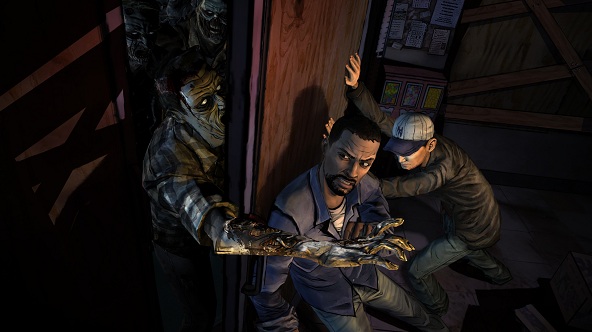

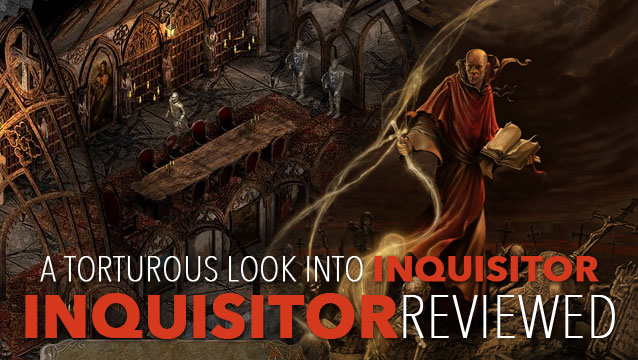
10 years of development. Three years to translate the game to english. 1.2 million kilometers of exterior and interior terrain and a script that boasts over 5,000 pages of text and up to 150 hours of play time. And it's an old-school, hardcore, mature role-playing game where I play as an inquisitor in a setting inspired by our own medieval and religious history and lore? One where I can gather evidence, accuse, arrest, torture and try heretics? Oh boy. That sounds fantastic.
But unfortunately Inquisitor is a difficult game to talk about and recommend. It wanted me to be angry, to scream at it, to tell it it was being a jerk and puff out my chest and arms and ask it why? What do you want me to do? You're a terrible boyfriend who only shrugs and responds with, "I don't know. You figure it out. You like a good mystery, right?" And despite my frustration at his lack of communication, I kept coming back.
Metaphors aside, Inquisitor has been something of a mixed experience, one that has at times drawn me in, kept me thinking about it, and left me eager to come home and play it some more. But a few hours later my eyes may have been crossed and my vision blurred because whoever wrote the game really wanted me to rea—I mean play his new boo—I mean game. Or I may have been utterly lost and confused, upset that I had just talked to every single NPC and scoured every single corner of every building, forest and dungeon five times looking for any way to progress the story and failing miserably. Perhaps I would even have a dream about the game where I actually found the solution, pleased with myself and fist-pumped the dreamscape air. The key was within that strange crystal in my inventory all along! But then dream faded, and I was left to realize it was in truth a nightmare.
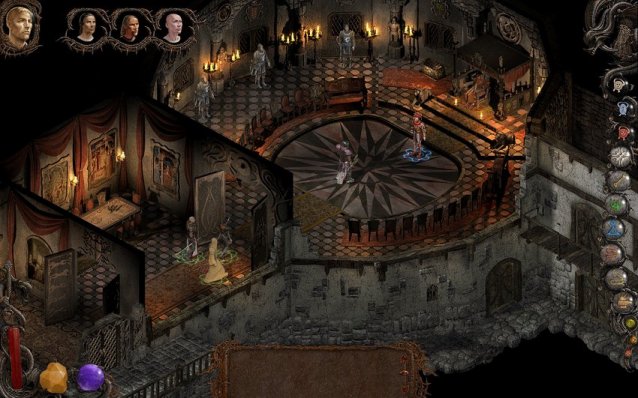
That does not sound like a glowing endorsement. It sounds frustrating, and at times it is, but Inquisitor also does a lot right. I want people who love hardcore, old-school role-playing games to play it. However, there are a few pieces that hold it back from being something I can recommend to everyone and instead is something I can only recommend with a number of caveats.
There's a strange duality to those few pieces. For example, Inquisitor's 5,000 pages of text certainly felt like 5,000 pages. Every character had a mouthful to say, paragraphs unto paragraphs of information and opinions that at times seemed unending. And because the game does not hold the player's hand — suggestions or hints are rare and even certain solutions may be obtuse — it became necessary to talk to every single NPC about every single topic. Less is more, but at times Inquisitor appeared believe the opposite, and the pace slowed to a crawl.
Despite how long-winded the game can be, the depth the characters go to in describing their world and their predicaments does enough to make the world, though perhaps not necessarily themselves, feel believable and the atmosphere rich. I wanted to find the source of their horrors, and to root out and destroy the heresy and demonic forces that threatened not only the town of Hillbrand but all of Ultherst. Inquisitor's writing succeeded in drawing me into its universe, but it was not an immediate reaction.
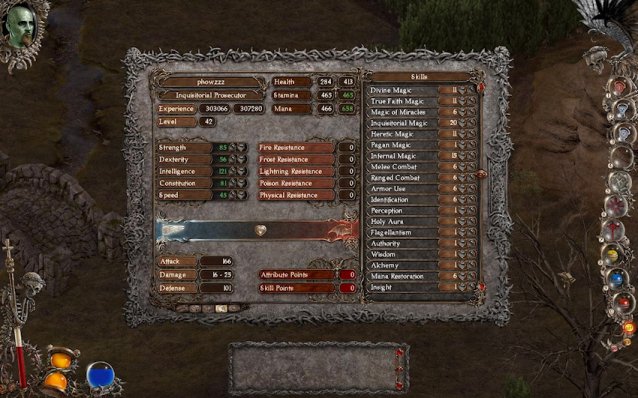
Aside from the uncertainty of what to do next, there was another reason to talk to the towns' denizens. Heretics or criminals may be someone's neighbor, and there are citizens who are more than eager to turn on and accuse each other.
"His house wasn't burned down by the fires, and his crops did not die! He's a heretic!"
The charge was bullshit, of course; and yet, as an inquisitor, I could gather testimonials, accuse, arrest, and torture the poor man in attempt to find more evidence before his trial. And while I generally tended to be diligent in my investigations so as to continue being the absolute nicest inquisitor - and to keep my morality high, as torture lowers it — I found the overall system to be fascinating. It added to the atmosphere of the game and made me feel like a medieval Cole Phelps.
In between being a detective, I was slaying monsters, or at least choking down countless potions in an attempt to avoid a terrible end. Inquisitor is a hard game, even on the easiest of settings. Death came to me swift and unexpectedly. Status effects were debilitating and ruinous. Dungeons are solidly dark and very dangerous. I even died to barrels. Several times. As I leveled up I did become much more capable and resilient, but Inquisitor lacks precision and control, making a number of fights a lot harder than they need be.
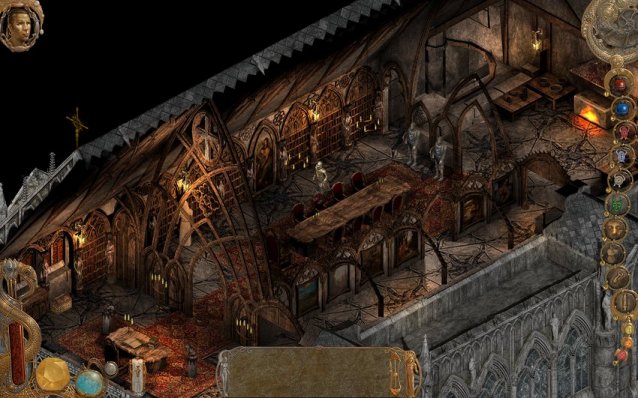
While Inquisitor can be paused during combat, the actions that can be taken are few and do not stack. Party members cannot be controlled directly, aside from simple commands such as stay, charge, attack my target, and so forth. They act more as meat shields than intelligent companions. And combat abilities are used more as buffs than special attacks. Ultimately, this makes preparedness more than reaction the key factors to success, particularly the stockpiling and mass consumption of potions. That lack of control was never a sticking point for me, but for a game so clearly inspired by giants — there's even a 'you must gather your party before venturing forth' reference found in the loading screens — its simplistic combat may disappoint some people.
And so we come to the ultimate question: should you buy this game? 14.99 is a wonderful price for a product with so much content. It's atmospheric, unique, mature, and also a little hard to recommend without some caveats. Inquisitor is an investment, both in terms of time and sometimes patience. But if you want a deep role-playing game that absolutely does not hold your hand, that's gritty and dark and full of believable but lengthy lore, then Inquisitor may be the RPG you've been waiting for.
---
A review copy of Inquisitor was provided to us by GOG.com. You can pick up the game here for $14.99.

